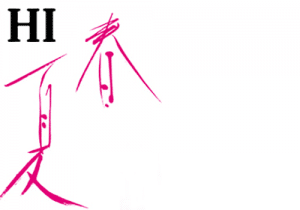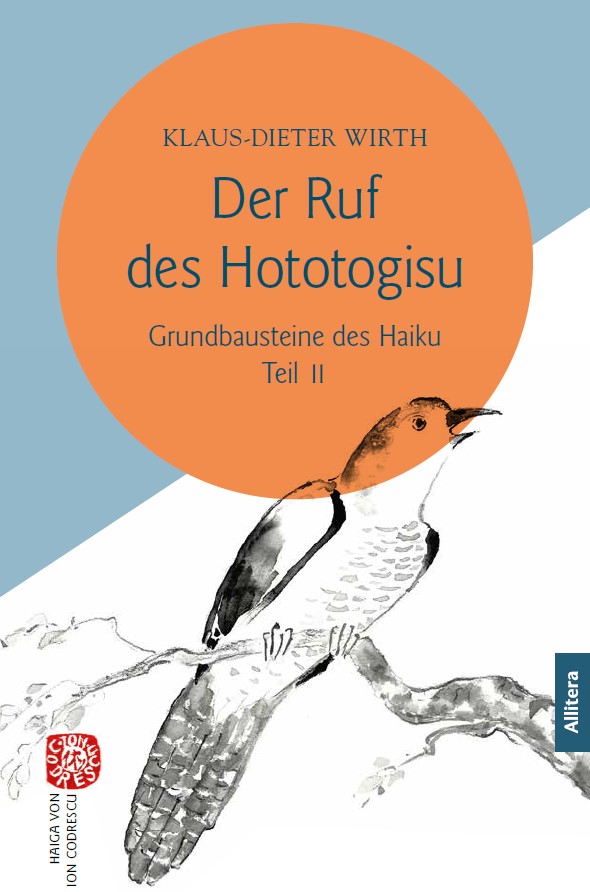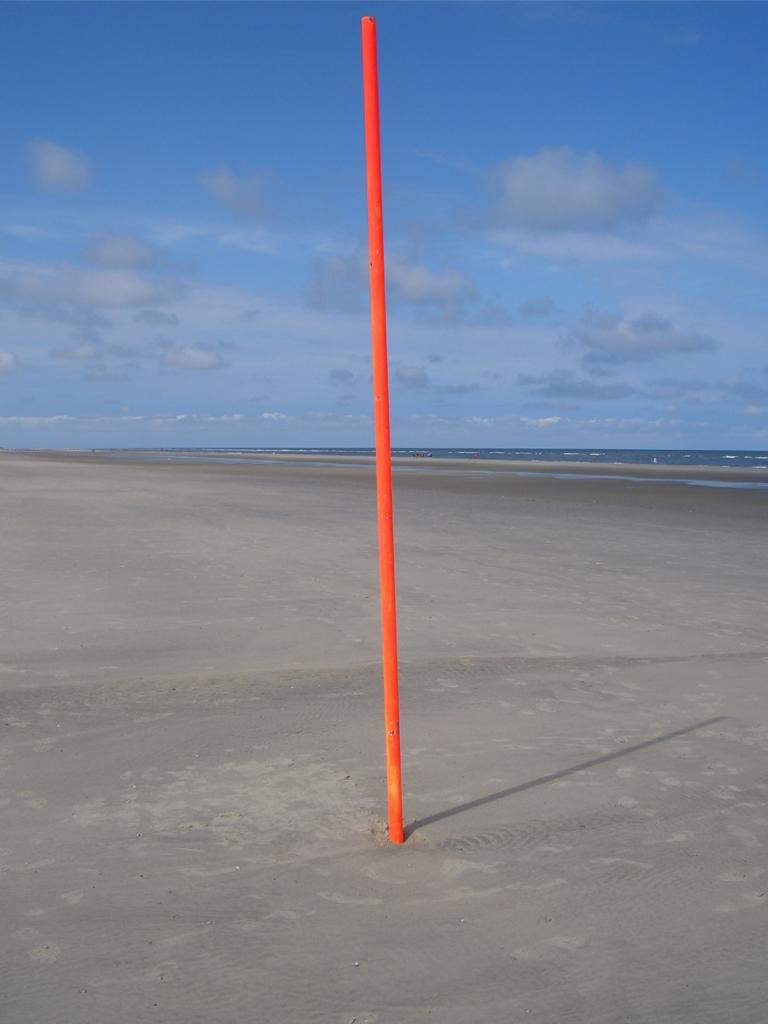Im Zeitraum August bis Oktober 2013 wurden insgesamt 319 Haiku und 20 Tanka von 78 Autorinnen und Autoren für diese Auswahl eingereicht. Einsendeschluss war der 15. Oktober 2013. Jeder Teilnehmer konnte bis zu 5 Haiku oder Tanka einsenden.
Diese Werke wurden vor Beginn der Auswahl von Claudia Brefeld anonymisiert, die auch die gesamte Koordination hatte. Die Jury bestand aus Fried Schmidt, Brigitte ten Brink und Peter Wißmann. Die Mitglieder der Auswahlgruppe reichten keine eigenen Texte ein.
Alle ausgewählten Werke (37 Haiku und 3 Tanka) sind nachfolgend alphabetisch nach Autorennamen aufgelistet – es wurden bis zu max. drei Werke pro Autor/in aufgenommen.
„Ein Haiku/ein Tanka, das mich besonders anspricht“ – unter diesem Motto besteht für jedes Jurymitglied die Möglichkeit, ein Werk auszusuchen (noch anonymisiert), hier vorzustellen und zu kommentieren.
Der nächste Einsendeschluss für die Haiku/Tanka-Auswahl
ist der 15. Januar 2014.
Es können nur bisher unveröffentlichte Werke eingereicht werden. Keine Simultaneinsendungen.
Da die Jury sich aus wechselnden Teilnehmern zusammensetzen soll, möchte ich an dieser Stelle ganz herzlich alle interessierten DHG-Mitglieder einladen, als Jurymitglied bei kommenden Auswahl-Runden mitzuwirken.
Claudia Brefeld
Ein Haiku, das mich besonders anspricht
Ausgesucht und kommentiert von Fried Schmidt:
Schreibblockade
selbst in Delphi
nur Zikaden
Elisabeth Weber-Strobel
Zugegeben: Es ist mir nicht leicht gefallen, gerade diese drei Zeilen als mein persönliches Best-of-Haiku der vorliegenden Auswahl vorzustellen. Als bekennender Vertreter der „reinen Lehre von den 17 Silben“ muss mich ein kürzerer Text schon mächtig beeindrucken, um die volle Punktzahl zu erhalten. Außerdem hatte die Jury wieder einmal die Qual der Wahl, aus der Fülle der Einsendungen, bei denen oft nur Nuancen den Ausschlag geben, den Primus inter Pares herauszufinden.
Aber: Immer wieder haben wir das Glück, ein Haiku zu finden, dass uns auf den ersten Blick gefällt, so ganz gefühlsmäßig, unbewusst, aus dem Bauch heraus – und das dann, mit zunehmender Analyse, doch ein wenig verblasst, den Glanz des Einmaligen und Neuen verliert.
In diesem Fall ist es anders: Der erste Eindruck hat nicht getäuscht, auch nach dem zehnten, zwölften Lesen wird das Haiku nicht schwächer. Im Gegenteil, es gewinnt zunehmend an Tiefe. Ein großartiges Bild in 6 schlichten Wörtern. Keine Silbe zu viel. Was sollte man daran ändern?
Schreibblockade
Das Halloween aller Literaten. Nächtelanges Sitzen vor einem weißen Blatt, Rotwein und Zigaretten. Ruheloses Wandern zwischen Schreibtisch, Küche und Papierkorb. Wochen voller Zweifel, Hoffnung und Zweifel. Das Grauen hat viele Gesichter.
selbst in Delphi
Das selbst hat mich endgültig überzeugt. Die Flucht vor der Schreibblockade – ein spektakulärer Ortswechsel soll helfen. Delphi. Der klassische Ort für Eingebungen. Der Mittelpunkt der Welt am Parnass, Heimat der Musen, speziell der Lyrik. Eine vertraute griechische Landschaft, angefüllt mit der Erinnerung an gelungene Texte. Wenn nicht hier, wo sonst kann der Bann gebrochen werden?
nur Zikaden
Aber selbst hier, trotz des phantastischen Panoramas und der Reminiszenzen an bessere Zeiten, werden keine kreativen Gedanken mehr frei. Die Zikaden bleiben Zikaden und als banales Jahreszeitenwort für einen Sommerurlaub letztlich ein Symbol des Scheiterns. Bonjour, tristesse, wenn einem in und zu Delphi nicht mehr einfällt. . . Schreibblockade pur.
Anschaulicher lässt sich das Thema wohl kaum umsetzen. Form und Inhalt entsprechen sich. Die Kürze und der Einsatz von Allerweltsbegriffen spiegeln in diesem Haiku gekonnt die anhaltende sprachliche Verarmung des Dichters, sein literarisches Verstummen wider. Zikaden nur.
Es geht also auch unter 17 Silben . . .
Ausgesucht und kommentiert von Brigitte ten Brink:
da liegt die zeit
rädchen und unruh
aus dem gefüge
Sylvia Bacher
Ich lese dieses Haiku und mein erster Gedanke ist, wieso liegt da die Zeit? Und dann wird mir klar, der Begriff „Zeit“ wird in diesem Haiku auch als Synonym für „Uhr“ verwendet.
Die Mechanik der Uhr, „rädchen und unruh“, ist „aus dem gefüge“ geraten, mit anderen Worten, die Uhr ist kaputt.
Mein zweiter Gedanke ist, die Zeit existiert und umgibt mich doch weiterhin, auch wenn diese eine Uhr nicht mehr funktioniert.
Die Worte klingen in mir nach. Ich lese noch einmal und sehe nicht nur die beschädigte Uhr vor mir, ich fühle mich mit dem Thema „Zeit“ konfrontiert, in seiner gesamten Komplexität, eben weil die erste Haikuzeile nicht `die uhr ist kaputt´ lautet, was von der Silbenzahl auch ins Schema gepasst hätte, doch für ein gutes Haiku ohne Zweifel zu einfallslos, oberflächlich und eindimensional gewesen wäre, sondern „da liegt die zeit“. Das ist viel spannender und geht weit über die Tatsache der kaputten Uhr hinaus.
Die Zeit verbindet den konkreten Augenblick und die Dinge, die sich in ihm befinden, mit der Vergangenheit, der Zukunft und der Welt und auch der Uhr wird ein Platz in diesem Gefüge zugewiesen. Im Zeitalter der Digitalisierung ist diese Art, die Zeit anzuzeigen, fast schon altmodisch und so liegt die Zeit vor mir wie in einem Museum und wirkt auch ein wenig wie weggeworfen. „da liegt die zeit“, wie so vieles, was nicht mehr weiterverwendet wird, weil es repariert werden müsste oder weil die Technik, die Weiterentwicklung vorangeschritten ist und „bessere“ Produkte geschaffen hat. Welchen Wert hat die Zeit? Wie gehen wir mit der Zeit um? Nutzen wir sie? Lassen wir sie verstreichen? Hinsichtlich des Klimawandels und der Entwicklung und Nutzbarmachung erneuerbarer Energien eine wichtige Frage. Welchen Stellenwert nimmt die Zeit in unseren Lebensläufen ein, welchen weisen wir ihr zu? Auf diese Fragen hat jeder Mensch seine ganz individuellen Antworten und in diesem Sinne ist „Zeit“ auch ein individuelles Phänomen. Jeder Mensch hat sein spezielles Verhältnis zur Zeit und sein Verständnis von Zeit und nutzt sie entsprechend.
Dies alles sind aber nur Teilaspekte. Wichtiger erscheint mir, dass die Zeit per se das Thema dieses Haiku ist. Dieser Gedanke verbirgt sich für mich hinter dem konkreten Bild der funktionsuntüchtigen Uhr. Die Uhr kann ihre Aufgabe, die Zeit anzuzeigen, nicht mehr erfüllen und damit gerät mehr als nur die Uhr aus dem Lot. Was ist, wenn die Zeit nicht mehr anschaubar ist, keine Orientierung mehr bietet, keinen Überblick mehr über vorher, nachher, hier und jetzt verschaffen kann? Was geschieht, wenn mit der Uhr die Zeit aus den Fugen gerät und vielleicht sogar aufhört zu existieren, als physikalische Einheit, als philosophisches Phänomen und als psychologische Wahrnehmungsdimension? Herrscht dann Leere oder Chaos? In meiner Vorstellung zerfließen dann nicht nur die Dinge, wie die Uhren in Dalis Gemälde „Die zerrinnende Zeit“. Alles Sein verliert seine Struktur und seinen Sinn.
Dieses Haiku verbindet verschiedene, spezifische Bedeutungen des Zeitbegriffes mit der allen Existenzen und Erscheinungen übergeordneten Zeit. Die Zeit, die wir auf der einen Seite bestimmen können, uns anschaubar und zu Nutze machen können und der wir auf der anderen Seite ausgeliefert sind und die wir als vierte Dimension noch nicht so recht begriffen haben.
Der abstrakte Begriff der „Zeit“ wird den mechanischen, handwerklich konkret fassbaren Bestandteilen der Uhr, dem Rädchen und der Unruh, gegenübergestellt und so wird durch den Kontrast zwischen anschaulicher, greifbarer Wirklichkeit und nicht dinglicher Wirklichkeit gleichzeitig ihre Verwobenheit deutlich.
Dieses Haiku ist eine in wenige Worte gefasste Momentaufnahme, die eine konkrete Begebenheit (kaputte Uhr) in einen größeren Zusammenhang (Zeit) stellt und so einen Blick auf das Allumfassende zulässt.
Ausgesucht und kommentiert von Peter Wißmann:
verlaten kruispunt
stoplichten regelen
de stilte
verlassene Kreuzung
Ampeln regeln
die Stille
Marian Poyck
Ein starkes Bild, das in diesem Haiku mit knappen 13 Silben beschworen wird. Eine Kreuzung, ich denke sie mir an einer Landstraße, an einem Sonntagmorgen, vielleicht einem Herbstmorgen. Leichter Nebeldunst, der die Wiesen rechts und links sowie die entlaubten Bäume im Hintergrund in Unschärfe taucht. Es ist still. Die friedliche Szene kommt ganz ohne menschliches Personal aus, und dennoch ist der Mensch in ihr präsent. Ampeln, von Menschen geschaffen und dort platziert, stehen an der Kreuzung und geben unaufhörlich grün, gelb und rote Zeichen. Sie regeln einen Verkehr, den es gar nicht gibt, oder, wie es im Haiku heißt: Sie regeln die Stille. Natürlich braucht die Stille keine Ampeln und selbstverständlich muss und kann sie gar nicht geregelt werden. Das Tun der Ampeln ist überflüssig und absurd. Es verweist auf den Menschen, der in Gestalt seiner ‚Geschöpfe‘ – der Ampeln – nicht damit aufhört dort etwas regeln zu wollen, wo es gar nichts zu regeln gibt. Es bedarf nur 7 Silben – ‚Ampeln regeln die Stille‘ – und einer kurzen Hinführung – ‚verlassene Kreuzung‘ – um dieses Bild und diese Assoziationen entstehen zu lassen. So sieht für mich ein gelungenes Haiku aus.
Die Auswahl
Krankenhausfenster,
nachts um halb drei kommt leise
der Mond zu Besuch.
Johannes Ahne
da liegt die zeit
rädchen und unruh
aus dem gefüge
Sylvia Bacher
im spinnennetz
verfangen – aufatmen –
nur eine feder
Sylvia Bacher
zum regen musik
die scheibenwischer
nicht im takt
Sylvia Bacher
Tango –
zwischen den Wangen
keine Lügen mehr
Gerd Börner
Bergpfad
Ein Stein kollert
hinab zu den Wolken
Reiner Bonack
kernspintermin
im goldenen blatt besiegen
sie wieder den krebs
Ralf Bröker
Der Tag bricht an –
ich öffne die Tür
gegen den Wind
Horst-Oliver Buchholz
Gutenachtlied –
die Erde wiegt sich
tiefer und tiefer ins Blau
Frank Dietrich
nach dem Feuerwerk
das Feuerwerk
der Sterne
Frank Dietrich
Wechseljahre –
in leere Nester
fällt Schnee
Frank Dietrich
spätes Rendezvous –
der Kater leckt sich
Glanz ins Fell
Gerda Förster
Wegfahrsperre
zwischen Rad und Kotflügel
ein Spinnennetz
Hans-Jürgen Göhrung
Amselgesang
frühmorgens auf dem Dachfirst –
der schwarze Muezzin
Erika Hannig
Morgenregen –
vom Bambus tropft
die Sonntagsstille
Erika Hannig
Erntedankfest
er arbeitet weiter …
der Sichelmann
Angelika Holweger
kuhwarme Milch
eine Kanne voll
zerbeulter Geschichten
Ilse Jacobson
Klammer Morgendunst.
Nacktschnecken auf dem Weg zur
Halle des Buddha
Markus Jansen
alter Biergarten –
über die Mauer weht
Weißer Holunder
Silvia Kempen
am Ende des Tages
der Duft
eines Limettenblattes
Eva Limbach
Morgenstille
nur einen Hahnenschrei entfernt
Eva Limbach
getrennt
der sternenhimmel
löst sich auf
Ramona Linke
Viren-Schnelltest –
die Wirklichkeit
wechselt die Farbe
Ramona Linke
Zwanzig Kilogramm
pro Woche abnehmen
Zwetschgenernte
Dietmar Näscher
Herbst
Das Jahr bekommt
Altersflecken
Eleonore Nickolay
verlaten kruispunt
stoplichten regelen
de stilte
verlassene Kreuzung
Ampeln regeln
die Stille
Marian Poyck
Erste Schneeflocken
zergehen auf den Zungen
wie auf dem Asphalt.
Wolfgang Rödig
Besuch im Heim.
Sie erzählt den Kindern
ein fremdes Leben
Boris Semrow
Flohmarkt
ausgebreitet vor mir
meine Jugend
Boris Semrow
Englischer Rasen
Bienen suchen vergebens
die Wiese von einst
Monika Smollich
Herbstnachmittag
in den Lücken des Windes
Mutters Stimme
Dietmar Tauchner
irgendwann nachts
werden meine Gedanken
zu Grillengesang
Dietmar Tauchner
erster Herbststurm
ich lege mein Fahrrad
an die Kette
Elisabeth Weber-Strobel
fremde Klänge
aus dem Haus abseits
das keiner kaufen wollte
Elisabeth Weber-Strobel
Schreibblockade
selbst in Delphie
nur Zikaden
Elisabeth Weber-Strobel
… führen nie
durch Frühling oder Herbst
U-Bahn-Schienen
Klaus-Dieter Wirth
„Schicksalssymphonie“
vom Sitzplatz nebenan
Mottenkugelduft
Klaus-Dieter Wirth
Nach der Flut.
Wieder Omas Häuschen
renovieren. –
Keiner von uns wird
jemals hier leben.
Tony Böhle
Um zwei mit dir
im Café verabredet,
stell‘ ich meine
Uhr zehn Minuten zurück. –
Ja, für mich bist du perfekt!
Tony Böhle
die Sonnenblumen
begleiten den Nachtzug
sich verbeugend
mit offenen Augen
treten wir in die Nacht ein
Dragan J. Ristic







